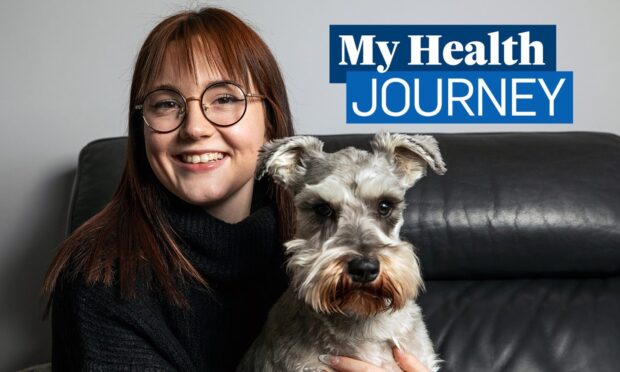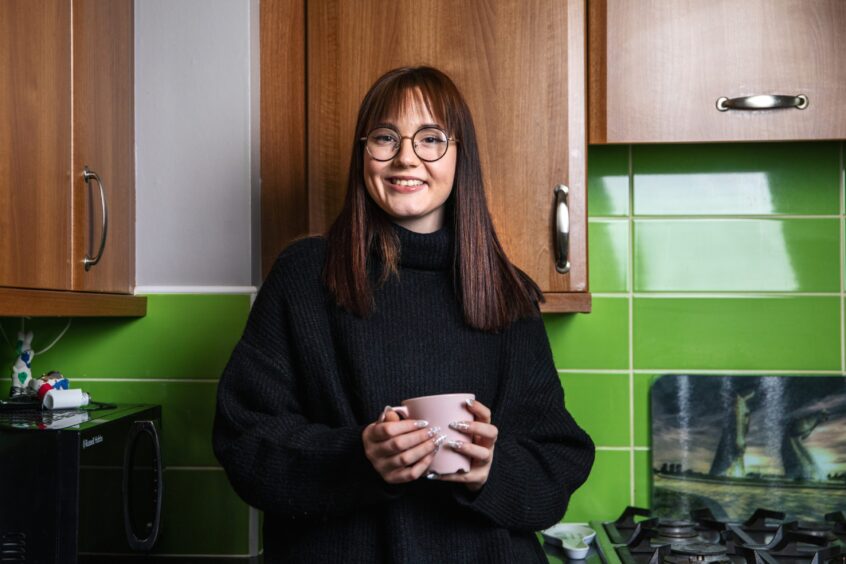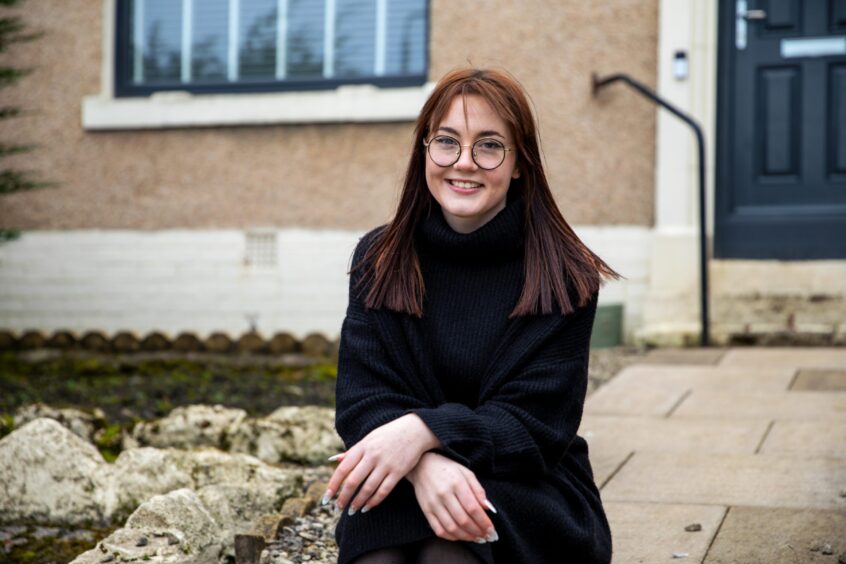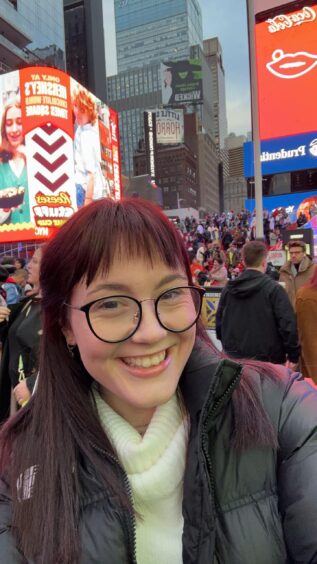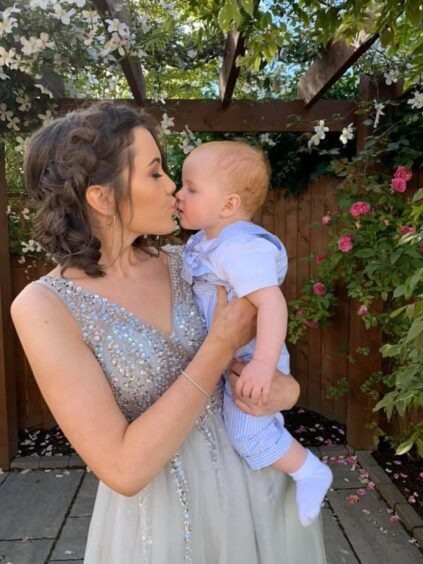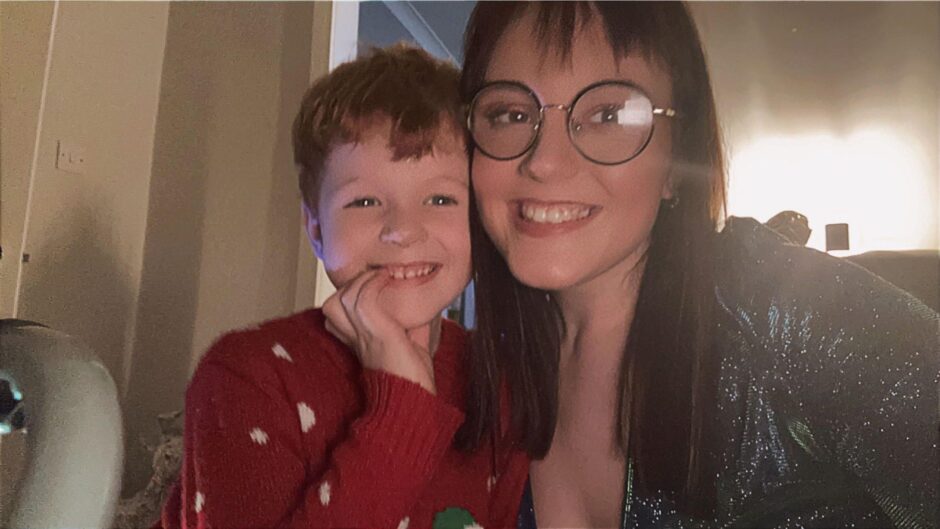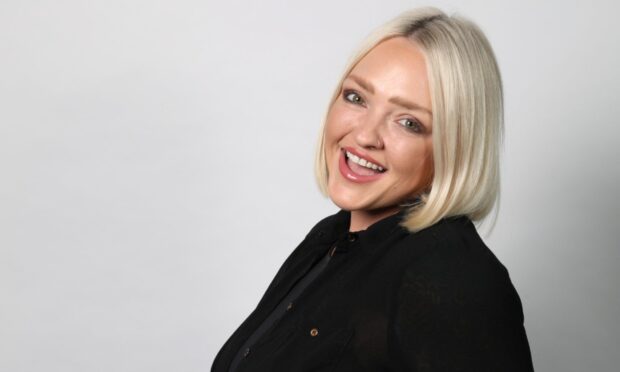Stirling student Abbie Bonnyman knows just how hard it is to recover from an all-consuming eating disorder that could have killed her.
The 21-year-old admits it is the “scariest” thing she has ever done.
But she is also really proud of the fact that she has successfully recovered from anorexia.
The Stirling University student feels so passionate about it, that she is studying to be a psychologist – in the hope that she will be able to pass on the skills she has learned to help others.
“Recovery is literally the scariest thing I have ever had to commit to. But it has also been the best thing,” she explains.
“It’s a hard and bumpy road but it is so worth it when you get to a good place, look back and you see how far you have come.
“The skills I learned during therapy will stick with me for life.
“I want to use the skills I learned to help others and this is why I want to be a psychologist.
“I want to pass that knowledge on to others who might be struggling like I was.”
What triggered Abbie’s eating disorder
Looking at Abbie now you would never think that she was once in the all-consuming grip of the eating disorder, anorexia.
But she explained that it wasn’t comments about her size which triggered her weight loss as a teenager.
Abbie said it began when she was bullied at the age of 14.
“I was bullied through primary school and at the start of high school.
“It wasn’t particularly to do with my weight, but it had an impact on my self-esteem.
“I don’t know why I was picked on maybe it was due to the fact I was quite clever and wore glasses.
“There was also a lot of death in my family at that time as I lost three grandparents in the space of two years which also had an effect on me.
“That’s how it started.”
From there she thought she should try and be ‘healthier’.
So she decided to lose some weight – which developed into losing a lot of weight.
Abbie’s eating disorder escalated
Abbie lived at home with her parents in Bo’ness. When they noticed she was losing a lot of weight, they took her to see a GP.
The GP put Abbie’s weight loss down to her being stressed about exams.
“But it got to the point where friends of mine at school noticed…and one of them told her mum,” Abbie said.
“She worked with my big brother and told him and then my mum found out.”
Abbie’s mum then took her back to the doctor’s and she was referred to CAHMS who saw her a few times a week.
But it wasn’t long before Abbie’s eating disorder escalated and she was admitted to hospital.
“It was really hard for my parents because they didn’t realise it was a disease.
“They believed I wasn’t helping myself because I wasn’t eating.
“But for me it was a form of addiction. I was addicted to losing weight.”
Admitted to a psychiatric hospital
Abbie was admitted to a psychiatric hospital in Glasgow in December 2018 after her weight plummeted to a dangerously low level.
She was 16 years old and ended up being tube-fed.
She spent six months in hospital but says she didn’t receive any psychiatric counselling until she was near the end of her stay.
Once she reached what was deemed to be a healthy weight, Abbie was discharged and treated as an outpatient through CAHMS.
But after eight weeks, she relapsed and was back in hospital for two months.
“My 17th birthday was around that time and I started to think maybe I should try to get better.
“I had a lot of bad days.
“But eventually it got to the stage where I could be discharged.
“I had psychiatric support this time which made things better. It made the weight gain easier to cope with.”
Abbie’s recovery from eating disorder anorexia
It took Abbie a long time to start the recovery process properly.
The fourth-year psychology student ended up back in hospital on another two occasions with the last admission in May 2020.
But she vividly remembers a comment a doctor made and this is what gave her the encouragement she needed to get better.
“I had turned 18 and I was basically told by a doctor in the hospital that I would probably be in and out of hospital for the rest of my life.
“And that is what gave me the push I needed. I thought ‘I will show you, I won’t be’.
“I’m not saying it was then easy after that.
“I was with intensive adult mental health services and I almost ended up on an adult ward at one point. But I fought my way out of it.
“Eventually, slowly, but surely, I got to the stage where I didn’t need adult services anymore.
“And I was discharged from mental health services last summer.”
What is Abbie’s relationship with food like now?
Abbie, who works part-time as an autism practitioner for Scottish Autism, said her relationship with food is much better now.
“I have a good relationship with food in the sense that I enjoy it now – particularly Mexican food.
“I don’t purposely restrict myself now.
“But the years of damage I have done to my body have taken a toll as I am now left with chronic stomach problems.
“Yet I would much rather have the pain than the voice in my head telling me not to eat at all. So things are definitely better.”
How family boosted Abbie’s recovery
Abbie believes getting an offer of a place at Stirling University gave her the boost she needed to get better.
And there was a new family member who also assisted in her recovery.
“My nephew, Leo, was born in June 2018 and he was a massive motivator for me.
“I’d say at one point he probably saved my life without even knowing it and we have an amazing bond now.
“If I was ever struggling, I would just go and see him and the daily fight would be worth it when I would see his smile or hear him say my name.
“It made me realise there was so much more to life than anorexia and I had so much to live for.”
Next month Abbie is taking part in a sponsored skydive at St Andrews to collect money for UK eating disorder charity BEAT.
She is wanting to give back to the charity after her experience with anorexia.
Abbie is set to do the fundraising skydive in St Andrews on March 3.
She said: “I never thought I would be able to do a skydive.
“But then I also never thought I would beat my eating disorder.
“I thought it was something I would have to live with for the rest of my life.
“But I have come to realise that it’s not a life sentence – you can recover.”
Anyone wanting to make a donation to Abbie’s fundraising skydive can visit here.
If you’re worried about your own or someone else’s health, you can contact Beat, the UK’s eating disorder charity, 365 days a year on their Scottish helpline at 0808 801 0432 or via Scotlandhelp@beateatingdisorders.org.uk
